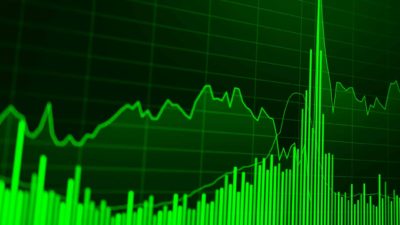An incredible 435,000 share market virgins in Australia bought their first shares since COVID-19 lockdowns hit these shores.
That's according to new research from Investment Trends, which found the number of active investors in Australia reached a new record of 1.25 million at the end of 2020.
It seems there is now a new generation interested in investing in equities, with 1-in-6 of those new investors aged under 25.
"COVID-induced market volatility and a low interest rate environment were important prompts for first-time investors entering the market," said Investment Trends head of research Irene Guiamatsia.
"But even more prominent was the desire to learn a new skill, highlighting how many Australians chose to spend their free time during the lockdowns."
Trading in foreign shares exploded during COVID-19
After the stock market crash in March, US shares rebounded far more spectacularly than Australian stocks. Since 23 March, the S&P/ASX 200 Index (ASX: XJO) has risen 47.7% while the S&P 500 Index (SP: .INX) has shot up more than 74%.
This piqued the interest of many local investors, with the number of Australians actively trading foreign shares doubling from the previous year.
There are now 109,000 Australians that actively dabble in shares outside our borders.
"The spectacular recovery witnessed by US stocks in the second half of 2020 has captured the attention of a global audience, prompting many Australians to consider investing beyond local equities," Guiamatsia said.
"A greater choice of investment platforms has been a key driver for uptake, with recent new entrants giving investors more choice than ever."
As well as specialist foreign market services like Stake, mainstream brokers like CMC introduced $0 brokerage trading of US shares for Australians in the past year.
Newbies need education
However, the influx of first-time share investors means trading platform providers need to pump up their education efforts.
Low-fee online brokers have lowered the barrier to entry for everyday Australians. But experts last year warned this could lead to social and financial problems similar to gambling.
The suspicion is that trading platforms receive a fee for each transaction, so there is little incentive for them to encourage their customers into a 'buy and hold' mindset.
Some modern share trading apps are also "gamified", increasing the adrenaline rush in the chase for short-term wins.
"[Trading apps] claim that it makes it easier for investors to understand stocks. But at the same time, the simplicity encourages retail investors to trade without undertaking thorough research," said senior lecturer in behavioural finance at RMIT University, Angel Zhong.
"A big selling point of these apps is the low transactional threshold, which encourages investors to buy low-priced stocks. In finance research, low price [is] a feature associated with what we called the 'lottery-like' stocks."
The Investment Trends study showed Australian share investors are indeed craving information. Strategy education was sought from 27% of investors, while another 20% craved daily newsletters from their broker.
"Too many times we've heard stories of investors getting caught up in FOMO, making rash short-sighted investing decisions," said Guiamatsia.
"But our research highlights that investors are hungry for knowledge, resources and tools to help them build long-term wealth. Investment platforms that effectively support their clients on their investment journey will stand out."








